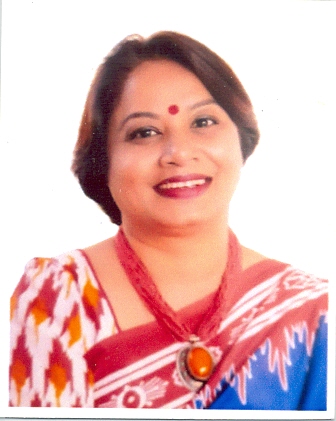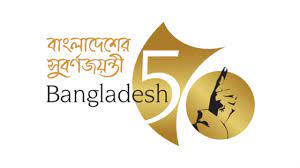বিশ্ব ঐতিহ্যের তালিকায় পহেলা বৈশাখ এর মঙ্গল শোভাযাত্রার স্থান পাওয়া সংক্রান্ত ইউনেস্কো প্রেস রিলিজ
UNESCO Press Release No.2016-155
Five new inscriptions on the Representative List of the Intangible Cultural Heritage of Humanity
Addis Ababa (Ethiopia), 30 November—The celebration of the New Year, shared by 12 countries, and elements from Bangladesh, Belgium, China and Cuba have been inscribed this morning on the Representative List of the Intangible Cultural Heritage of UNESCO, following the decisions adopted by the Intergovernmental Committee for the Safeguarding of the Intangible Cultural Heritage, taking place until 2 December in Ethiopia.
The Representative List includes forms of expression that testify to the diversity of intangible heritage and raises awareness of its importance. The review of nominations for inscription on this list will continue today, 30 November, and on Thursday 1 December.
The elements inscribed during this morning session are (in order of inscription):
Afghanistan; Azerbaijan; India; Iran (Islamic Republic of); Iraq; Kazakhstan; Kyrgyzstan; Pakistan; Tajikistan; Turkey; Turkmenistan; Uzbekistan— Nauryz, Navruz, Nawrouz, Nevruz, Nooruz, Novruz, Nowrouz or Nowruz
New Year in Afghanistan, Azerbaijan, India, Iran (Islamic Republic of), Iraq, Kazakhstan, Kyrgyzstan, Pakistan, Tajikistan, Turkey, Turkmenistan and Uzbekistan is celebrated on March 21st known as Nauryz, Navruz, Nawrouz, Nevruz, Nooruz, Novruz, Nowrouz or Nowruz. For two weeks, various customs take place including a special meal, family visits, public rituals and street performances to encourage peaceful communities, shared and promoted through participation.
Bangladesh— Mangal Shobhajatra on Pahela Baishakh
Mangal Shobhajatra is a festival for the public that celebrates Pahela Baishakh (New Year’s Day) on April 14, organized by students and teachers of Dhaka University’s Faculty of Fine Art. The tradition began in 1989 when students, frustrated by living under military rule, wanted to bring the community hope for a better future. It features floats and masks symbolizing strength, peace and a driving away of evil to allow for progress. With knowledge of the element shared by the school, it promotes public solidarity and democracy.
Belgium—Beer culture in Belgium
Making and appreciating beer is part of the living heritage of a range of communities throughout Belgium. It plays a role in daily life, as well as festive occasions. Almost 1,500 types of beer are produced in the country including by some Trappist communities. Craft beer has become particularly popular. Beer is also used by communities for cooking, producing products like beer-washed cheese, and paired with food. Knowledge of the element is shared in the home, social circles, breweries, universities and public training centres.
China—The Twenty-Four Solar Terms, knowledge of time and practices developed in China through observation of the sun’s annual motion-
The ancient Chinese divided the sun’s annual circular motion into 24 segments, calling each segment a specific ‘Solar Term’. The criteria for its formulation were developed through the observation of changes of seasons, astronomy and other natural phenomena. The element remains of particular importance to farmers for guiding their practices. Some rituals and festivities are associated with the terms, which have contributed to the community’s cultural identity. Knowledge of the element is transmitted through formal and informal means of education.
Cuba—Rumba in Cuba, a festive combination of music and dances and all the practices associated
Rumba in Cuba is associated with African culture but also features elements of Antillean culture and Spanish flamenco. A symbol of marginal Cuban society, the practice developed in poor neighbourhoods of cities, shanty towns and rural areas spreading from west to east of the country. Rumba in Cuba, with its chants, movements, gestures and music acts as an expression of resistance and self-esteem while evoking grace, sensuality and joy to connect people. Knowledge of the element occurs via imitation within families and neighborhoods.
***
A media kit containing facts and figures, frequently asked questions and descriptions of the nominations as well as contacts for interviews is available.
Journalists wishing to cover the meeting should register online: http://www.unesco.org/culture/ich/en/registration-00884
The meeting will be webcast: http://www.unesco.org/culture/ich/fr/live-webcast-00897
More about the meeting: http://www.unesco.org/culture/ich/en/11com
Media Contact: Lucía Iglesias Kuntz l.iglesias@unesco.org, in Addis Ababa + 251 961259974, French mobile: +33 (0) 6 80 24 07 29
Follow the meeting on Twitter: @unesco, #IntangibleHeritage
If you would rather not receive future communications from UNESCO, let us know by clicking here.
UNESCO, 7, place de Fontenoy, PARIS, NA FRANCE France

























